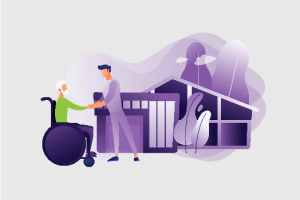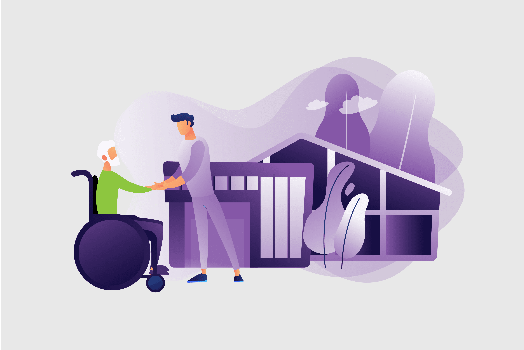The largest health care consumer group in the United States is the one that covers disability
care. The Institute of Medicine has warned against not meeting the needs of this group. There
are large implications for individuals and society as a whole. But, the question remains: How can
we make it easier to get health care for those with disabilities? Here are some suggestions. Let’s
begin with some basics. At least twelve centers of disability research are part of the NIH.
You can categorize Windsor NDIS by your physical structure, mental functioning and activity
limitations. There are many different groups with different needs. Some are obvious while others
are subtler and less noticeable. Some disabilities are invisible and have both mental and
physical implications. A genetic condition or an environment condition could cause disabilities.
They can lead to a variety of health problems. While the causes of these conditions vary, they all
affect the lives of those with disabilities.

The Federal Government contributes almost 20 percent to its annual budget to healthcare. And
because it provides health care services, it is the biggest insurer of people with disabilities. HHS
is the lead Federal agency for health care, disease prevention, and health promotion. The
combined budgets for the Centers for Medicare & Medicaid Services total $606.9 trillion. Their
two largest programs are Medicare and Medicaid. The State Children’s Health Insurance
Program serves certain children with disabilities.
Women with disabilities need to be provided with proper reproductive health services. Many
health care professionals are unaware of the needs and limitations and make assumptions
based upon stereotypes. This can lead to serious consequences. Women with disabilities will
need routine gynecological checks, testing for STDs, contraception, fertility consultations, and
routine gynecological exams. They may also need advice about proper child rearing and
menopause. They may not have the means to access this type of care.
People with disabilities may need assistance with daily tasks or have complex needs. Specially
trained caregivers are available to assist in these situations. These caregivers can provide 24-
hour supervision for individuals with disabilities. If you’re looking for a way to provide for a loved
one with disability care, here are some tips:
While the Americans with Disabilities Act and related regulations have had a relatively limited
effect on health care for individuals with disabilities, there are significant structural and
programmatic barriers still in place. Many health care professionals lack the knowledge and
motivation to make these regulations successful. That’s a real shame. These policies have a
significant impact on the lives of people with disabilities and their health. However, they do not
mean that disability care is impossible. They are an important part of the health care system.
Americans are facing the greatest health problem: disability. As a result, many individuals with
disabilities do not have access to health care. There is no universal healthcare for people with
disabilities. Many individuals with disabilities have limited access to health insurance and health
services, and many lack coverage for the necessary services they need. But with more research,
disability care will be a reality for everyone. They cannot ignore their health or well-being.
Accessing disability care can be made affordable.
The Federal Government supports many health disparities in people with disabilities. There is no
Federal agency whose sole responsibility is disability health research. These results have a
significant effect on the provision of health care for persons with disabilities. They reveal
important weaknesses in the role played by non-federal stakeholders. As a result, there are
several recommendations for improvement. The NCD reports can be a helpful tool for health
care providers and policymakers. The federal government is committed to advancing this
important field.

